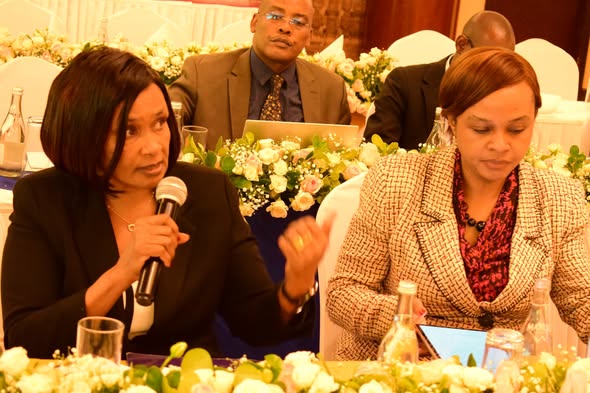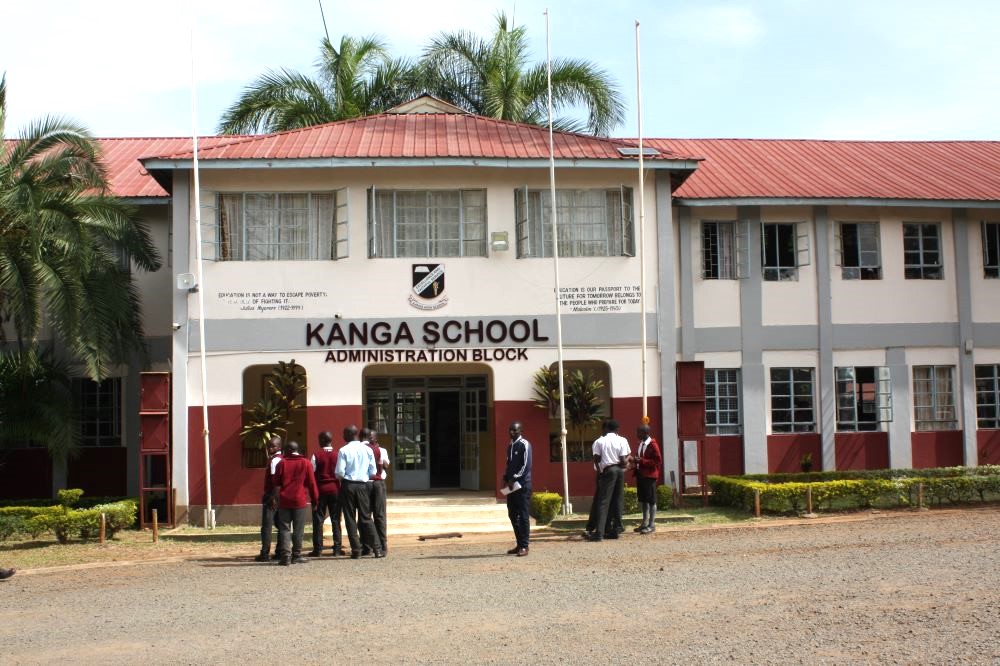The Teachers Service Commission (TSC) has announced a new, tiered medical benefit structure that defines clear financial limits for each teacher’s healthcare access under the Social Health Authority (SHA).
The reform, unveiled at Safari Park Hotel, Nairobi, on November 10, 2025, marks the official transition of teachers’ medical cover from Minet to the Public Officers Medical Scheme Fund (POMSF).
The historic agreement was signed between the Commission and all teachers’ unions — KNUT, KUPPET, and KUSNET — creating a unified medical framework that guarantees fairness, transparency, and equity across all job grades.
TSC Acting CEO Dr Evelyn Mitei said the new structure recognises every teacher’s professional level and family needs.
The benefit structure defines how much each cadre can claim annually for inpatient and outpatient care, maternity, dental, and optical services, as well as life and last-expense benefits.
It ensures that every teacher, regardless of posting or rank, can access quality healthcare through SHA’s network of more than 9,000 accredited hospitals nationwide.
The matrix illustrates TSC’s effort to balance professional responsibility with personal welfare. A newly employed Primary Teacher II in Job Group B5 now enjoys inpatient cover worth KES 750,000.
At the same time, a Chief Principal in Job Group D5 receives up to KES 4.5 million annually for hospitalisation and surgery. The outpatient limit for progress is similar, rising from KES 100,000 at the entry level to KES 350,000 at the top.
Maternity benefits range between KES 100,000 and KES 300,000, ensuring comprehensive prenatal, delivery, and postnatal care for teachers and their families.
READ ALSO:
Kakamega DG calls for immediate probe into murder of Munyuki Principal
Dental and optical allowances rise gradually from KES 10,000 to KES 25,000, reflecting additional care needs at higher grades.
The plan also includes group life insurance coverage, scaling from KES 700,000 for lower cadres to KES 3 million for top administrators, alongside last-expense benefits to assist families with funeral costs.
Dr Mitei said this framework was developed after consultations with unions and teachers’ representatives to ensure sustainability and fairness.
The system is fully automated, with hospital admissions, verification, and billing handled digitally through SHA’s platform.
| Job Group / Designation | Inpatient (KES) | Outpatient (KES) | Maternity (KES) | Dental (KES) | Optical (KES) | Group Life (KES) | Last Expense (KES) |
|---|---|---|---|---|---|---|---|
| B5 – Primary Teacher II | 750,000 | 100,000 | 100,000 | 10,000 | 10,000 | 700,000 | 100,000 |
| C1 – Primary Teacher I / Secondary Teacher III | 1,000,000 | 125,000 | 100,000 | 10,000 | 10,000 | 700,000 | 100,000 |
| C2 – Secondary Teacher II / Diploma Teacher | 1,250,000 | 150,000 | 120,000 | 12,500 | 12,500 | 900,000 | 100,000 |
| C3 – Graduate Teacher / Senior Teacher I | 1,500,000 | 175,000 | 120,000 | 15,000 | 15,000 | 1,000,000 | 100,000 |
| C4 – Senior Master IV / Deputy Head Teacher II | 1,750,000 | 200,000 | 150,000 | 15,000 | 15,000 | 1,200,000 | 150,000 |
| C5 – Head Teacher / Senior Master III | 2,000,000 | 225,000 | 150,000 | 15,000 | 15,000 | 1,500,000 | 150,000 |
| D1 – Deputy Principal IV / Senior Head Teacher | 2,500,000 | 250,000 | 200,000 | 20,000 | 20,000 | 1,800,000 | 150,000 |
| D2 – Deputy Principal III / Senior Master II | 3,000,000 | 275,000 | 200,000 | 20,000 | 20,000 | 2,000,000 | 200,000 |
| D3 – Principal / Senior Master I | 3,500,000 | 300,000 | 250,000 | 25,000 | 25,000 | 2,500,000 | 200,000 |
| D4 – Senior Principal | 4,000,000 | 325,000 | 250,000 | 25,000 | 25,000 | 2,700,000 | 250,000 |
| D5 – Chief Principal | 4,500,000 | 350,000 | 300,000 | 25,000 | 25,000 | 3,000,000 | 250,000 |
Teachers will use biometric or OTP verification to access care, ensuring immediate and transparent service delivery.
“The admission process has now been fully automated with zero human interface,” Dr Mitei confirmed.
“This ensures that teachers receive attention faster, without the frustrations of paperwork and pre-authorisation bottlenecks.”
The SHA cover also integrates three key government health funds — the Social Health Insurance Fund (SHIF), the Emergency, Chronic and Critical Illness Fund (ECCIF), and the Primary Healthcare Fund (PHCF).
These linkages provide continuity for long-term treatment and specialised care, particularly for chronic conditions, emergencies, and preventive health programs.
The benefit limits by job group, according to TSC, are part of the broader effort to align the education sector’s welfare systems with Kenya’s Universal Health Coverage (UHC) and the Bottom-Up Economic Transformation Agenda (BETA).
The Commission said the changes represent a deliberate move toward equity, efficiency, and accountability in the management of public health resources.
By Joseph Mamabili
You can also follow our social media pages on Twitter: Education News KE and Facebook: Education News Newspaper for timely updates.
>>> Click here to stay up-to-date with trending regional stories
>>> Click here to read more informed opinions on the country’s education landscape






